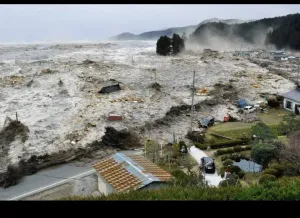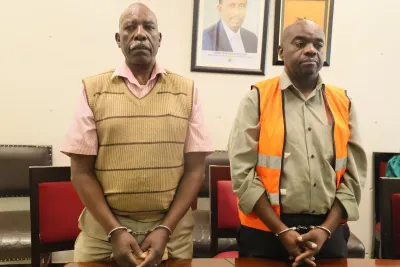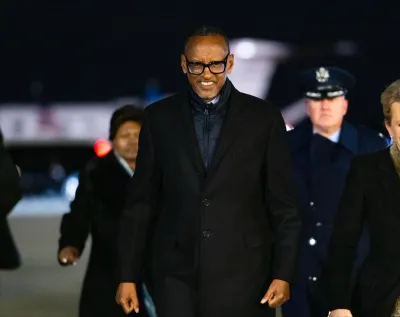
As the Bank of Uganda (BoU) intensifies its gold purchases to boost national reserves, experts are raising red flags about the origin of gold being traded within the country, warning that without strict traceability, the central bank risks being entangled in the illicit minerals trade of the Great Lakes region.
Don Bwesigye Binyina, one of Uganda’s top mineral policy experts and executive director of the Africa Centre for Energy and Mineral Policy (ACEMP), has cautioned the central bank over its gold buying strategy, particularly its reliance on local refineries and artisanal miners.
“BoU is keen on buying gold directly from refineries,” said Binyina. “But we have warned them that these refineries often source gold from unknown and unverified suppliers. Even the refineries themselves won’t disclose all their sources.”
BoU began purchasing gold from artisanal miners and local refineries in mid-2024 as part of a strategy to diversify Uganda’s reserves. However, this move has raised eyebrows due to the risk of “commingling”, a practice of mixing verifiable local gold with potentially illicit gold from countries like the Democratic Republic of Congo (DRC) and South Sudan.Wildlife safaris
Binyina explained that many refineries rely heavily on Know-Your-Customer (KYC) checks, which are often insufficient for establishing the true origin of gold.
“If the refinery where you’ve bought your one ton of gold can only prove that half came from internal sources, and the other half is from unverifiable KYC suppliers, by international standards, that’s comingling. And they will have you for dinner,” he warned.
Uganda currently has about six refineries, mostly located in Kampala and Entebbe, that supply processed gold for both local use and export. Despite Uganda’s participation in regional efforts to stem illegal mineral trade such as the International Conference on the Great Lakes Region’s (ICGLR) certification scheme, the country continues to report higher gold export volumes than can be accounted for by its domestic production.
According to a recent statement by Paul Twebaze, a researcher at the Advocates Coalition for Development and Environment (ACODE), Uganda exported significantly more gold in 2023 than it produced locally.
“DGSM reported just 15 kilograms of gold production, yet exports are in tonnes. So, where is the extra gold coming from?” asked Twebaze, who also serves on Uganda’s Extractive Industries Transparency Initiative (EITI) Multi-Stakeholder Group.
This discrepancy has led to growing international scepticism, with Uganda increasingly viewed as a transit point for smuggled gold, which is later exported as Ugandan origin. The concern is especially acute given the region’s history of mineral-linked conflicts.
While BoU Governor Michael Atingi-Ego has assured Parliament that the bank has put in place a stringent pre-qualification process for suppliers, including direct sourcing from artisanal, small, and large-scale miners, experts argue that more robust measures are needed.
Binyina suggests a structural shift: “The Bank of Uganda should consider establishing its own national gold refinery, like Zimbabwe has done. This would allow for proper control and traceability of gold, from mine to market.”
He adds that with a state-run refinery, gold from known mines like Mubende or Kassanda can be tracked and audited, strengthening Uganda’s compliance with ICGLR protocols and shielding it from accusations of trading in “conflict gold.”
Uganda became the fifth ICGLR member state to attain the Mineral Certification Scheme in April 2024, joining DRC, Rwanda, Burundi, and Tanzania. The certification, under the Regional Initiative against the Illegal Exploitation of Natural Resources (RINR), aims to ensure that minerals traded across the region are not linked to armed groups or criminal networks.
Despite this progress, Binyina emphasized that certification alone is not enough.
“The supply chains of gold remain opaque, and international traders remain wary. If Uganda doesn’t address commingling and traceability challenges, it risks exclusion from credible global markets.”
The stakes are high. Minerals, particularly gold, are a cornerstone of Uganda’s ambitious economic plan to grow its GDP tenfold from $50 billion to $500 billion by 2040. But to leverage this potential, Uganda must not only mine more, but mine responsibly.
As global demand for gold and other critical minerals increases amid energy transitions and financial uncertainty, Uganda’s ability to align economic ambition with transparent governance will determine whether it thrives or falters on the world stage.
Adopted from URN














Sunrise Reporter
Leave a Comment
Your email address will not be published.